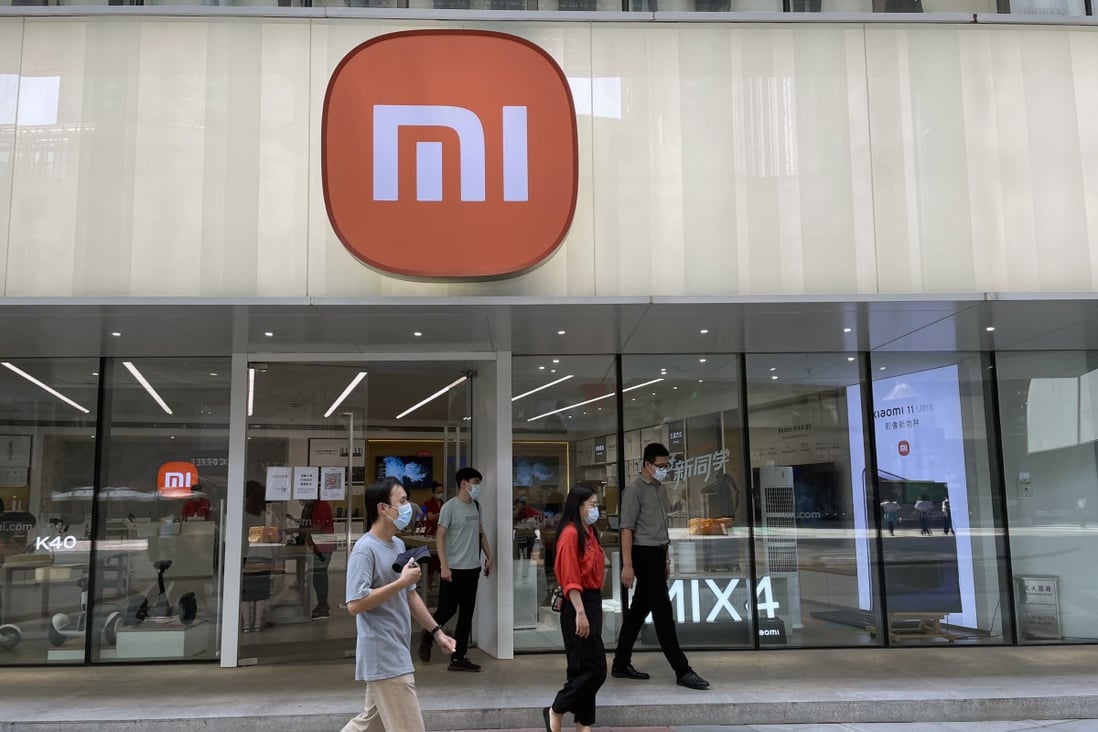Bilal9
ELITE MEMBER

- Joined
- Feb 4, 2014
- Messages
- 26,569
- Reaction score
- 9
- Country
- Location
- India’s federal financial crime agency says investigation uncovered years of remittance payments made by Xiaomi India to three foreign-based entities
- Xiaomi says contested payments were royalties paid for licensed technologies and an entirely legitimate part of its business operations

Dylan Butts
+ FOLLOW
Published: 10:30pm, 24 Apr, 2023

Xiaomi fails to get funds returned in India. Photo: SCMP/Simon Song
An Indian High Court on Friday rejected a plea from Xiaomi Group to return funds worth more than US$600 million after a year-long battle that began when the money was seized from the firm’s local subsidiary for alleged foreign exchange violations, as India-China tech relations remain sour.
The funds were seized in April 2022 after India’s federal financial crime agency, the Enforcement Directorate (ED), said an investigation had uncovered years of suspicious remittance payments made by Xiaomi India to three foreign-based entities.
At the time, ED said that Xiaomi India had not provided sufficient information on what goods or services had been exchanged for the payments. The agency alleged Xiaomi had hidden the payments “under the guise of royalties” in a violation of India’s Foreign Exchange Management Act.
“We are studying the matter and waiting for the written order,” said a Xiaomi India spokesperson about the decision by the High Court of Karnataka, the chief judicial authority in the Indian state of Karnataka. “We’d like to reiterate that our operations in India are compliant with all local laws and regulations.”
Xiaomi tops Russia market sales as Western brands retreat after Ukraine invasion
18 Apr 2023

According to the ED, the Chinese smartphone maker started its operations in India in 2014 and began making illegal remittance payments the following year to one Xiaomi Group affiliate and two other foreign companies, for an amount of 55.51 billion Indian rupees, worth about US$676 million today.Xiaomi says that the payments were royalties and a legitimate part of its commercial arrangements. In an October statement, Xiaomi India said that the payments in question were “for the in-licensed technologies and intellectual properties used in our Indian version products”.
The recipient of over 84 per cent of the payments in question went to the American semiconductor company Qualcomm, according to Xiaomi. Qualcomm announced a licensing agreement with Xiaomi Group in 2015, which allows the Chinese tech company to use Qualcomm chip technology in its smartphone manufacturing.
“These technologies and standard essential patents are used across the entire global smartphone industry. Without these technologies, our smartphones would not have worked in India,” said the statement, adding that the payments were only related to sales by Xiaomi India.
Qualcomm did not immediately respond to a request for comment.
In another petition against India’s Deputy Commissioner of Income Tax in December, Xiaomi partially won its appeal and avoided an additional seizure order worth over US$450 million (37 billion Indian rupees). The tax authorities alleged that Xiaomi India had reduced its taxable income by remitting money abroad.
The High Court set aside the seizure order but ruled that Xiaomi India would not be entitled to make payments from their fixed deposit accounts “in the form of royalties or in any other form to any companies located outside India”.
Chinese companies have faced increased scrutiny by Indian authorities since a clash at a disputed Himalayan border in 2020 inflamed political tensions between the world’s two most-populous countries. That same year, India blacklisted over 50 popular Chinese apps, citing privacy and security concerns.
In July, Indian authorities conducted a raid on dozens of offices owned by Vivo, another Chinese smartphone maker, seizing over 100 bank accounts linked to Vivo India containing over US$50 million.
According to reports, the Indian government is also planning to implement new security rules that could force smartphone makers to enable removal of pre-installed apps and mandate screening of major operating system updates. Most smartphones come with pre-installed apps that users cannot delete, such as Xiaomi’s app store GetApps.
According to Counterpoint Research data, Xiaomi was India’s leading smartphone seller from 2019 to 2022. However, Samsung Electronics overtook Xiaomi in the last quarter of 2022, and is now leading all other brands by sales for 2023 with over a fifth of the market, compared to Vivo’s 18 per cent and Xiaomi’s 16 per cent share.

